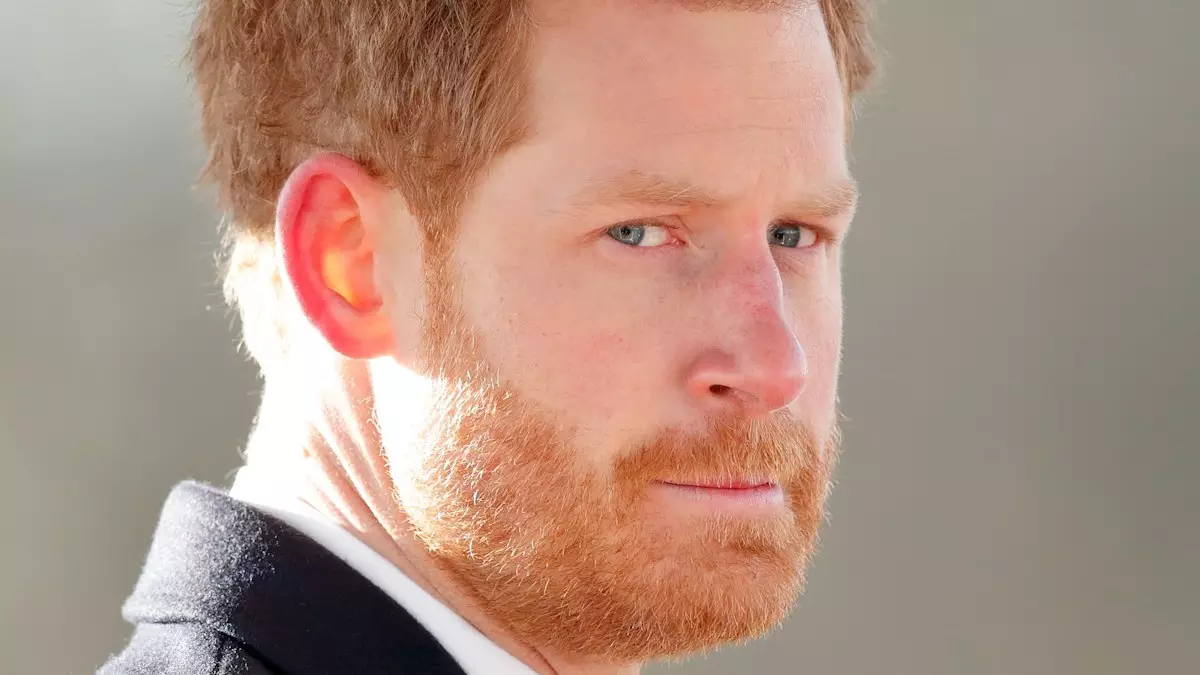The ongoing legal struggle between Prince Harry and Rupert Murdoch’s News Group Newspapers (NGN) exemplifies the tensions surrounding privacy rights and media ethics. Harry, the Duke of Sussex, has opted not to attend the initial proceedings in London, despite earlier suggestions of his presence. This decision is significant not only as it indicates his priorities but also places focus on the broader implications of his case, which targets unlawful information gathering practices purportedly employed by the tabloids over many years.
The forthcoming trial, where Prince Harry is set to testify in February 2024, revolves around serious allegations of phone tapping, privacy encroachments, and the illicit acquisition of personal data. These accusations date back as far as 1996 and involve practices that many argue breach fundamental principles of journalistic integrity. Harry’s accusations imply that NGN engaged in systematic misconduct that not only affected him personally but could undermine public trust in the media at large.
As a public figure, the Duke has wrestled with the invasive nature of media scrutiny, a plight exacerbated by the infamous behaviors of British tabloids. Through his legal actions, he hopes to illuminate a framework of media operations that disregard ethical standards for sensational stories. Unlike many of his colleagues and contemporaries in the entertainment industry, who have opted for settlements—reportedly due to the financial burdens and risks associated with prolonged legal battles—Harry’s decision to continue fighting reveals a profound sense of responsibility he feels toward changing the current narrative surrounding privacy issues in journalism.
Harry’s remarks at The New York Times’ DealBook Summit underlined his commitment to holding the media accountable for actions he perceives as corrupt. His insistence that the wrongdoings of a few should not dictate the entire media landscape reflects a concern shared by many citizens disillusioned with tabloid journalism. With his declaration, “I will be damned if those journalists are going to ruin journalism for everyone,” Harry is not simply pursuing personal justice; he is launching an assault on a system that he feels is deeply flawed.
Interestingly, the timing of his trial and personal statements coincide with a larger societal discourse about media ethics. As the public grapples with issues of misinformation and privacy, Harry’s case functions as a case study in the need for accountability. His narrative has implications that reverberate through the broader themes of freedom of speech, public interest, and the ethical boundaries of journalism. The Duke posits that transparency is crucial to restoring public faith, implying that if individuals like himself opt for silence or settlement, the cycle of abuse will continue unchecked.
A notable aspect of Harry’s ongoing battles arises from the personal ramifications within his royal family dynamics. The strained relationship with King Charles III is particularly noteworthy, as it reflects larger themes of loyalty and familial ties against the backdrop of public scrutiny. Reports suggesting that Harry turned down an offer to reside at Buckingham Palace during his potential visit underscore the existing tension—a dynamic complicated by his and Meghan Markle’s decisions to step down from royal duties in 2020.
Harry’s legal confrontations extend beyond privacy issues, intersecting with security provision matters that have remained contentious since his exit from royal responsibilities. His fight for taxpayer-funded security signifies a deeper struggle for safety and identity, particularly as he continues to shine light on the persistent threats posed by the very media he aims to hold accountable. The intersection of these personal and public battles shapes Harry’s evolving narrative as he moves forward with his legal ambitions.
Prince Harry’s journey through the labyrinth of legal battles against news conglomerates epitomizes a greater societal struggle for journalistic integrity and personal agency. With steadfast determination, he seeks not just to vindicate his own experiences but also to advocate for the broader population affected by media transgressions. His ongoing fight remains an emblematic testament to the complexities at play—the need for ethical journalism, human rights, and the personal toll of public life.
In a world where the lines between privacy and public interest often blur, the Duke’s battle serves as a clarion call for change. It challenges media narratives while advocating for a more responsible approach to journalism. Ultimately, Prince Harry’s pursuit of transparency resonates with many, advocating for a culture of accountability that he believes is imperative for restoring public confidence in the media.

